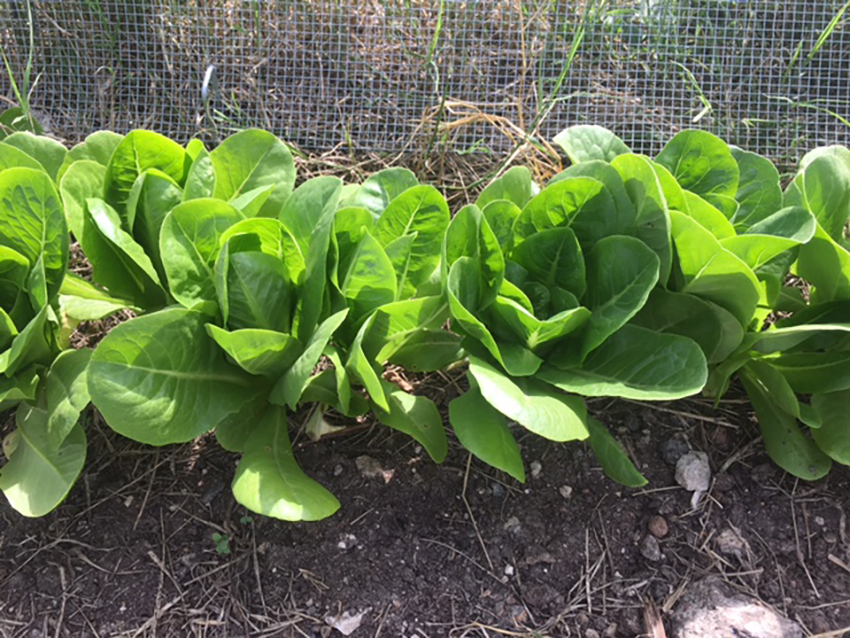Economics senior Joy Youwakim is trying to prove that one person’s trash can be another person’s garden.
As part of her undergraduate research, Youwakim is growing food on top of a landfill in Southeast Austin, on the border with Del Valle. The landfill is owned by the Texas Commission on Environmental Quality, TCEQ.
“The landfill is 330 acres. It’s a lot of land that just sits there,” Youwakim said. “It’s a covered landfill, so there’s waste, then a foot of soil, more waste, then another foot of soil.”
Youwakim first got the idea for the project while interning at the TCEQ. One of her coworkers introduced her to an employee in the Waste Management department of the agency.
“(I saw) a picture of a landfill and I was like, ‘I could grow food on top of that,’” she said.
She approached her research supervisor, mathematics lecturer William Wolesensky, with whom she had previously investigated the effects of climate change on the growth of corn and sorghum. She was then able to use her connections within TCEQ to secure the site and received a Green Fee grant from UT to fund her project.
One goal of the project is to show that food can be safely grown on top of a landfill. The products will be sent to a lab for testing for heavy metals, specifically cadmium and lead.
Currently, she is experimenting with growing radishes, lettuce, eggplant, bell peppers, cucumbers and cantaloupe. So far, she has been able to grow these crops without having to use any special techniques.
Youwakim, also a math minor, is using differential equations to model how heat affects plant growth in the landfill. She is working with her four research assistants to measure temperatures at different depths in the ground and compare growth rates at different positions.
While she said she hopes the project will show that safe food can be grown on landfills, she has ideas if the test results show otherwise.
“People could use the space for raised beds and put their own clean soil on top,” she said.
Youwakim is interested in the economics of food and people, particularly hunger issues and food security. The issue is not a lack of food, she said, but a misallocation of resources.
“You have all this land … and landfills are usually only used for baseball diamonds and golf courses,” Youwakim said. “I wanted to use it for something more useful.”
She said she hopes her work will encourage better use of landfill space and that the landfill project will allow local residents, particularly in Del Valle, to become more economically autonomous.
“A lot of Del Valle is on the poverty line, so giving them a way for them to directly get their own food would be great,” she said. “It’s state land anyways, so it should be given to the people and not left to rot. Landfills could be more useful then we allow them to be.”















